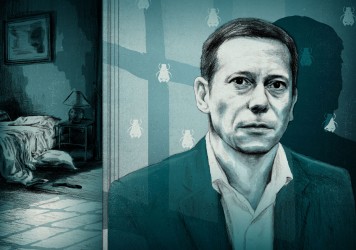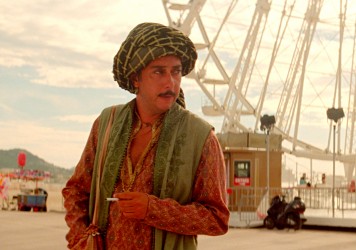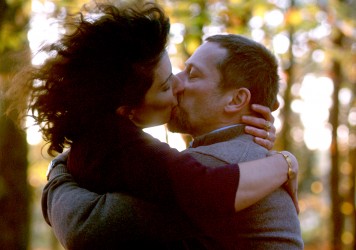A young loner goes off the rails in ’70s Czechoslovakia in this haunting, relentlessly bleak debut.
Prague, 1973. A young woman drives her truck down a bustling footpath, taking out a crowd of around 25 people. She, Olga Hepnarová, is convicted of mass murder and hanged less than two years later, thus earning the ignominious title of ‘last woman put to death in Czechoslovakia’. Forty years on, she is memorialised in I, Olga, the first feature from Czech directing duo Petr Kazda and Tomás Weinreb. With its plodding plot and penchant for moderation, this crime-drama-biopic lands with a final thud of realisation: I just spent 100 minutes semi-sympathising with a psychopath.
Socially receding Olga (Michalina Olszanska) asserts that she’s been bullied her whole life, by her family, schoolmates, and the crippled system of ‘psychiatric care’ (almost an oxymoron in Soviet Czechoslovakia) instated to restore her mental health. Leaving home in her late teens, Olga opts for self-imposed exile at her family’s rural farmhouse – a totem to her loneliness and apparent disregard for personal hygiene. Embodied with lupine likeness by Olszanska, Olga swings from detached loner to postal Prügelknabe (“victim of bullying,” she explains) faster than you can say ‘lady Unabomber’.
Captured in clinical black and white, the film surveys the social shades of grey that paved the way for this middling girl to commit premeditated mass murder. Aesthetically, it’s devoid of colour and warmth, much like Olga’s experience of childhood. Holed up in a hospital ward as a teen, she incredulously observes her fellow female inmates smoking and making out, before they turn on her, beating her up in an off-kilter scene that’s one part Annie to three parts Carrie.
Notably, this is the only instance of violence against Olga depicted in the film, despite her claims of suffering lifelong physical cruelty. In illustrating the cycle of abuse and its fatal repercussions, Weinreb and Kazda shelve tabloid sensationalism in favour of stylistic restraint. The spare production design occasionally edges towards student film realness, but minutiae like Olga’s socks-and- sandals ensemble help paint this greyscale picture of Communist-era repression. Bereft of a musical score, the empty soundscape speaks volumes about life under socialist rule. Any link between Olga’s unstable sexual identity and her precarious mental health largely goes unexploited.
After getting unceremoniously dumped by nubile girlfriend Jitka (Marika Soposká), Olga reveals to a psychiatrist that she longs for the closeness of a female life partner, though she later shacks up with father figure Miroslav (Martin Pechlát). No directorial judgement is passed on the awkward young woman whose worst enemy is arguably her own martyr complex, escalating incrementally across the film, exacerbated by break-ups, job loss and an arctic family environment.
Reading from Graham Greene’s ‘The Quiet American’, Olga asks, “wouldn’t we do better if we didn’t try to understand each other?” In 2016 – a time of relentless terror attacks, gun violence and political conflict – that’s a loaded question. But in their metered portrayal of a teen mis t-cum-murderer, it’s clear Weinreb and Kazda disagree with their protagonist.
Published 15 Nov 2016
Sensationalist cinematic clickbait?
Monster mashed with a bleak socialist-era aesthetic.
A timely cautionary tale about the cycle of abuse.

The French actor and sometime director discusses his deliciously nasty take on a Georges Simenon classic.

Drone strikes, exploding whales and a Portugal on the brink of collapse... Miguel Gomes’ astonishing latest is a new breed of movie epic.

The always exceptional Mathieu Amalric directs and stars in this compelling literary noir.